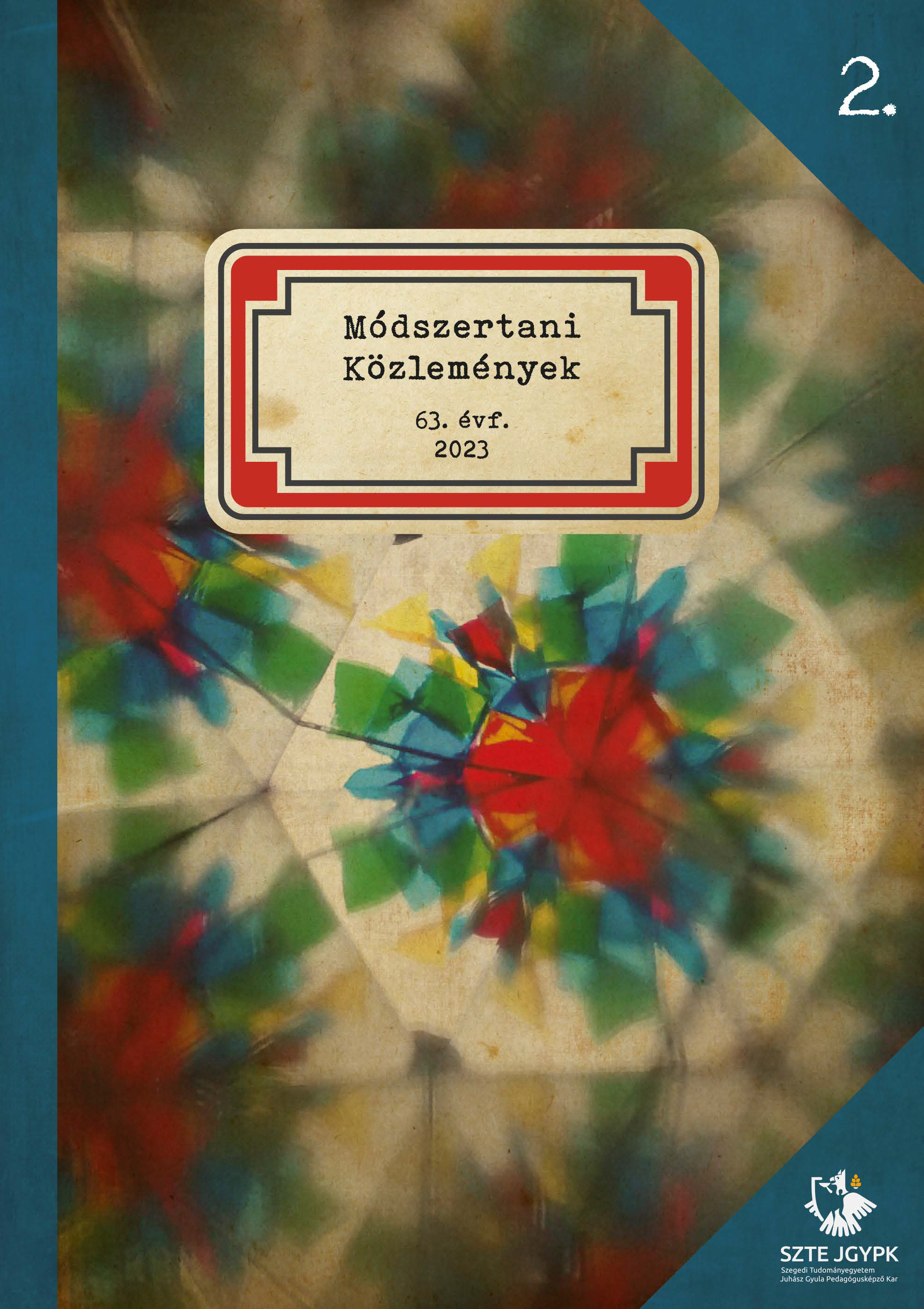Relationships between self-efficacy and psychological imunocompetence
Main Article Content
Abstract
Hungarian and international empirical research results confirm the importance of internal in maintaining mental balance and successfully coping with challenges. In this study, my goal was to map the self-efficacy of students participating in higher education, as well as their psychological resources, which include the areas covered by the Psychological Immune Competence Questionnaire. The results of the study proved that correlations can be demonstrated between the self-efficacy beliefs and psychological immunocompetence, of the responding special education students. Overall, based on the results of this study, it can be established that special education students have resources that can help them in their later practical and professional work. These resources can be used in the training process in connection with the complex formation of the personality and the strengthening of the areas to be developed. The acquisition of conscious attention to the resources of the personality can be considered one of the important tasks of the training process, with which education contributes to the preservation of the mental health of future teachers.
Article Details
References
Bandura, A. (1977): Self-efficacy: Toward a Unifying Theory of Behavioral Change. Psychological Review, 84. 2. sz. 191−215.
Bandura, A. (1994): Self-efficacy. In: Ramachaudran, V. S. (szerk.): Encyclopedia of human behavior. 4. kötet, Academic Press, New York. 71−81.
Bandura, A. (1997): Self-efficacy: The exercise of control. Freeman, New York.
Bandura, A. (2001): Social cognitive theory: An agentic perspective. Annual Review of Psychology, 52. sz. 1−26.
Bandura, A. (2012): On the Functional Properties of Perceived Self-Efficacy Revisited. Journal of Management, 38. 1. sz. 9−44. https://journals.sagepub.com/doi/pdf/10.1177/0149206311410606 (2023.02.20.).
Bredács Alice (2019): A pozitív pedagógia fejlesztési területei – a pszichológiai immunkompetencia és a reziliencia fogalmainak tükrében. Parlando: Zenepedagógiai Folyóirat, 2. sz. Paper: 2019/2019-3. https://www.parlando.hu/2019/2019-3/BredacsAlice.pdf (2023.02.21.).
Capone, V. és Petrillo, G. (2020): Mental health in teachers: Relationships with job satisfaction, efficacy beliefs, burnout and depression. Current Psychology, 39. 1757−1766.
Kopp Mária, Schwarzer, Ralf és Jerusalem, Matthias (1993): Hungarian Questionnaire in Psychometric Scales for Cross-Cultural Self-Efficacy Research. Zentrale Universitäts Druckerei der FU Berlin, Berlin.
Kopp Mária, Schwarzer, Ralf és Jerusalem, Matthias (1995): Általános énhatékonyság skála. http://userpage.fu-berlin.de/~health/hungar.htm (2023.02.20.).
Muenchhausen, S., Braeunig, M., Pfeifer, R., Göritz, A. S., Bauer, J., Lahmann, C. és Wuensch, A. (2021): Teacher Self-Efficacy and Mental Health – Their Intricate Relation to Professional Resources and Attitudes in an Established Manual-Based Psychological Group Program. Frontiers in Psychiatry, 12. sz. https://doi.org/10.3389/fpsyt.2021.510183 (2023.02.21.)
Oláh Attila (1996): A megküzdés személyiségtényezői. A Pszichológiai immunrendszer és mérésének módszere. Kézirat, Budapest.
Oláh Attila (2005): Érzelmek, megküzdés és optimális élmény. Belső világunk megismerésének módszerei. Trefort Kiadó, Budapest.
Rózsa Sándor és Kő Natasa (é. n.): Az észlelt énhatékonyság szerepe gyermek- és serdülőkorban. Kézirat.
Salavecz Gyöngyvér, Neculai Krisztina és Jakab Ernő (2006): A munkahelyi stressz és az énhatékonyság szerepe a pedagógusok mentális egészségének alakulásában. Mentálhigiéné és Pszichoszomatika, 7. 2. sz. 95-109. DOI: 10.1556/Mentál.7.2006.2.2 http://real.mtak.hu/58525/1/mental.7.2006.2.2.pdf (2023.02.20.).
Schunk, D. H. (1990): Goal setting and self-efficacy during self-regulated learning. Educational Psychologist, 25. sz. 71−86. https://libres.uncg.edu/ir/uncg/f/D_Schunk_Goal_1990.pdf (2023.02.20.).

